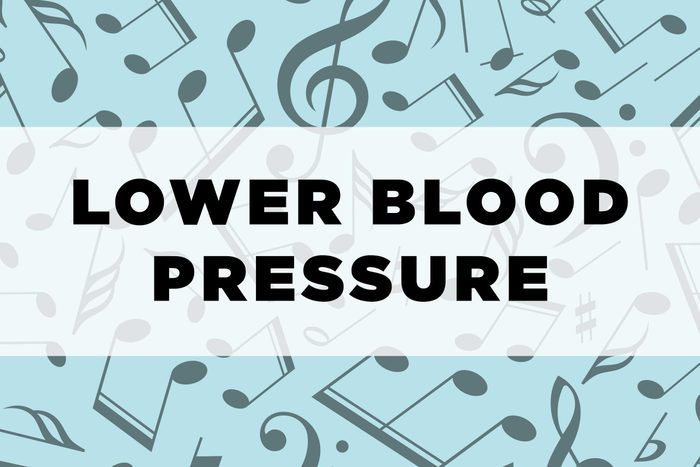
Classical music lowers blood pressure
Classical music does your body good—specifically, your heart. In a study published in the journal Deutsches Aerzteblatt International in 2016, researchers compared the effect of the music of Mozart and Strauss with that of ABBA on issues related to heart health. The result: Those who listened to Mozart and Strauss had markedly lower systolic and diastolic blood pressure, as well as lower heart rates. ABBA’s tunes, on the other hand, didn’t produce the same effects.
Why might this happen? “It is the emphasis of listening to the harmonies and rhythms of classical music that may provide a calming effect for people, thus helping to lower their blood pressure,” explains Michael Schneck, MD, a neurologist with Loyola Medicine in Chicago. “This could occur with classical music or jazz music, along with taking your blood pressure medication as prescribed from your provider.” Here are some other surprising things doctors might not tell you about healthy blood pressure.
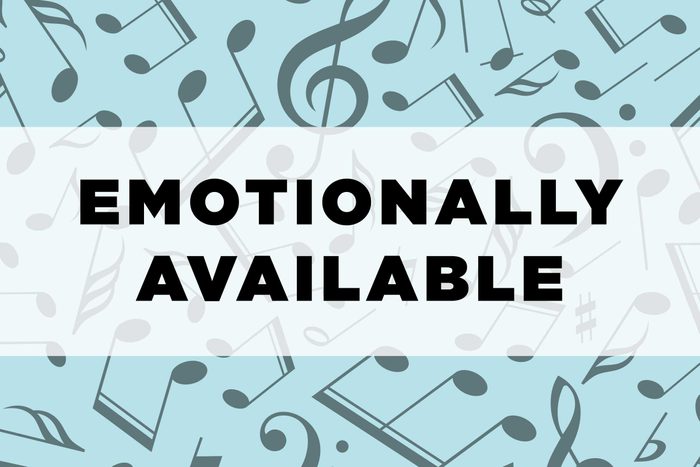
Classical music makes you more emotional
One study published in PLOS ONE in 2016 found that opera can produce a thoughtful, empathetic response in people, while an earlier study from 2001 found that people who listened to classical music were more willing to share personal information about themselves in writing. Catherine Jackson, a licensed clinical psychologist and board-certified neurotherapist based in Chicago, has noticed a similar effect during neurotherapy sessions when she plays light or classical music while patients engage in deep breathing. “Some patients who typically have a hard time sharing or discussing emotional content are better able to open up and share,” she says, adding that music may help relax people enough to open up about painful issues.
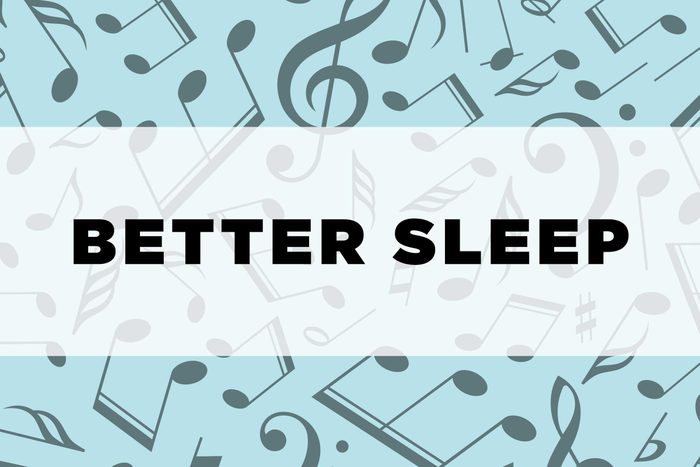
Classical music helps you sleep
Classical music may be an easy, inexpensive remedy for restless snoozers. One study published in the journal Critical Care in 2015 found that classical music, combined with earplugs and eye masks, induced sleep in patients recovering from cardiac surgery, while an earlier study published in the Journal of Advanced Nursing in 2008 found that students with sleep disorders slept better when they fell asleep to classical music. Why does classical music work better than other types of music? “While it can still be beneficial to the brain, popular music, music with words, and music with upbeat tempos can require your brain to multitask, and as the brain actively responds to the music, it may be difficult to fully focus on sleep or any other task,” says Jackson. “Most classical music has a slow tempo and is soothing, making it great to prepare your brain and body for sleep.” Try music that has a regular rhythm, low pitches, and tranquil melodies. If you still wake up exhausted after a full night’s sleep, it may be a sign that you’re not sleeping deeply enough.
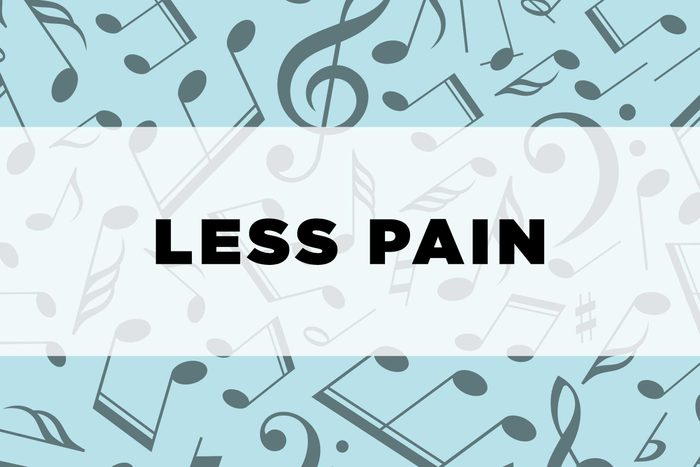
Classical music eases pain
Saying goodbye to pain could be as easy as cueing up your playlist. Numerous studies have found that music can provide pain relief, but classical music may provide extra benefits. According to research published in the International Journal of Critical Illness and Injury Science in 2012, intensive-care patients suffering from pain, as well as anxiety, depression, cardiovascular issues, and sleep disturbances, can benefit the most from classical music.
Even infants can get in on the analgesic action: A study published in Early Human Development in 2018, which looked at 80 full-term newborns in a Neonatal Intensive Care Unit in Italy who underwent painful procedures (such as heel pricks and antibiotic injections), found that classical music—specifically Mozart’s “Sonata for Two Pianos” and Beethoven’s “Moonlight Sonata”—reduced the infants’ perception of pain, as well as decreased their heart rates, improved oxygen saturation, and led to a quicker post-stress recovery. The researchers believe those two songs are similar to lullabies, “rich in harmonics and medium-low frequencies, with a regular rhythm.”
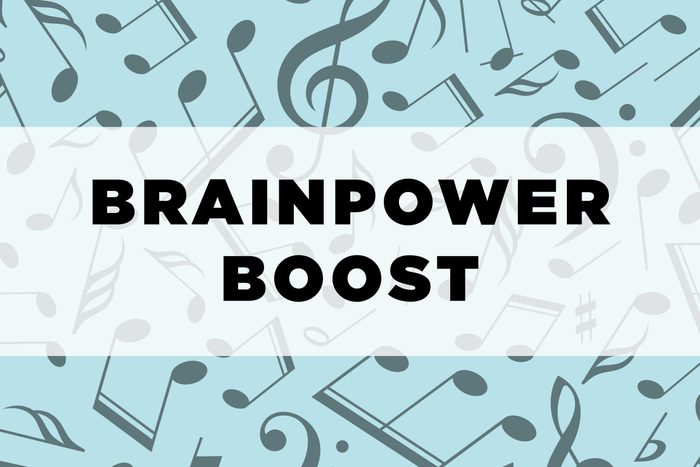
Classical music may make you smarter
This claim has garnered some controversy in recent years, and while music may not boost your IQ, there does seem to be a link between music and cognition. “Some claims about music making people smarter have been debunked, like Baby Einstein and the Mozart Effect,” says Jackson. “However, when we listen to music we enjoy, classical or otherwise, it makes us feel more joyful and that helps improve cognition. Put simply, music impacts how we feel, which in turn impacts how we perform on cognitive tasks.” She adds that a happy brain is a healthy brain and that music, especially music that evokes positive memories, can help to increase dopamine and neuroconnectivity, keeping the aging brain healthier. While more research is needed, she says, the connection between music and cognition is meaningful, though perhaps different than originally believed.
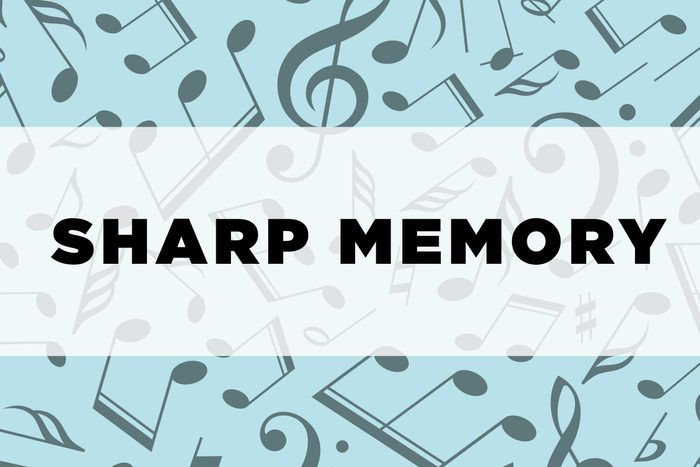
Classical music improves your memory
Next time you need to study for a big test or presentation, make Beethoven your companion. In a study published in Learning and Individual Differences in 2012, one group of students listened to a one-hour lecture where classical music was played in the background, and the other group heard the lecture with no music. Those in the first group scored significantly higher on a quiz than the second group. Researchers believe that the music made students more receptive to the information, allowing them to store and recall it more efficiently.
But if you really want to boost your brainpower, adds Dr. Schneck, don’t just stop at listening to classical music. “Music lessons and practice of any sort, particularly in classical music, may also contribute to improved brain plasticity and neural-network development, which can enhance learning and memory,” he says. Check out these daily habits of people with good memories.
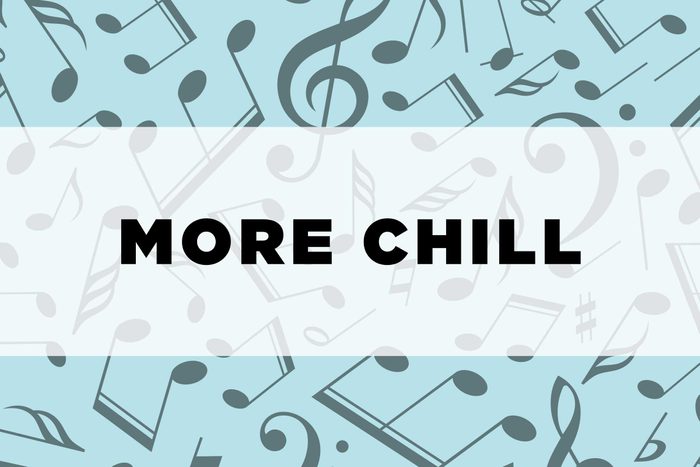
Classical music relieves anxiety
If you can’t seem to turn off your brain, you may want to turn on some music. “Some research finds that music can be used as a relaxation technique that can cause the heart rate to slow down and help relieve stress by lowering the breathing rate and emotional distress,” says Dr. Schneck. “Studies are finding this may lower cortisol levels to help [lessen] anxiety.” One such study, published in Complementary Therapies in Clinical Practice in 2018, looked at 180 preoperative patients and found that listening to natural sounds, classical Turkish, or Western music all reduced anxiety by lowering cortisol levels, as well as blood pressure and heart rate. While all of the music had a positive effect, the classical Turkish music was found to be the most effective. Check out these other home remedies for natural anxiety relief.
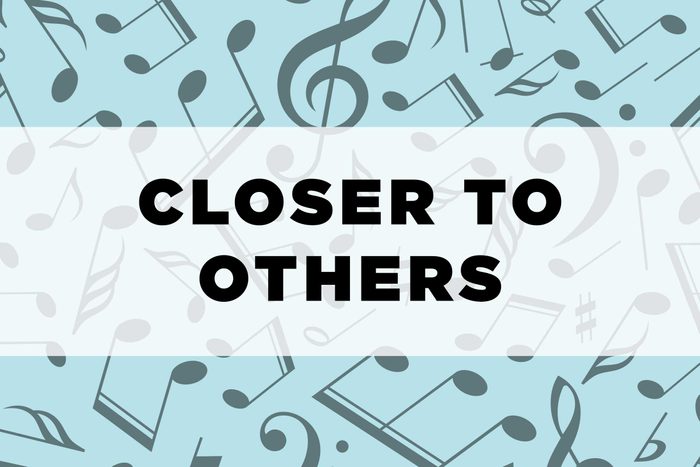
Classical music builds social relationships
Harmony with others could start with the harmony in music, according to new research. A study published in the journal Aging & Mental Health in 2014 found that among those with dementia, music served as a tool to feel connected to others because the subjects could listen to and discuss the music together. Family members connected to the study also acknowledged the communal aspects of musical connectedness, whether it was through singing songs together, participating in music therapy sessions, or listening to a visiting violinist. So turn on the radio, or plop down at the piano and invite others to enjoy the music with you; the notes could go a long way in bringing you closer.
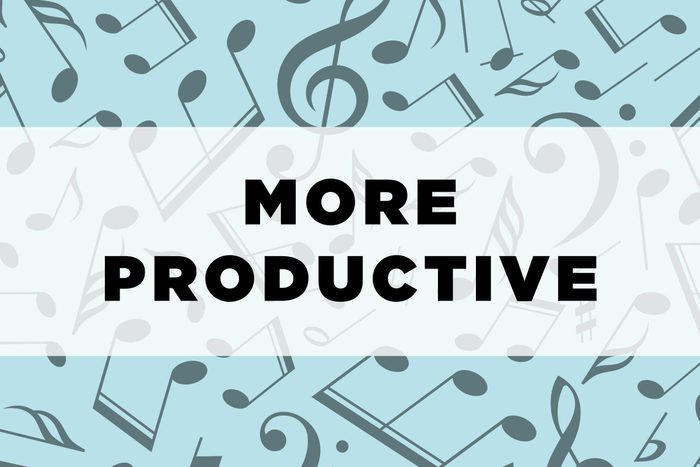
Classical music makes you more productive
“Research suggests that listening to music helps make repetitive tasks easier and is why it is sometimes recommended to listen to music at work or while completing chores at home,” says Jackson. “However, its effects on task performance depend on the music, the task, and the person.” That was illustrated in a study published in the Journal of Experimental Psychology: Applied in 2019, which found that a person’s “boredom proneness” and the complexity of the task correlated with whether or not music—classical or otherwise—contributed to productivity. Don’t miss these almost effortless ways to be more productive.
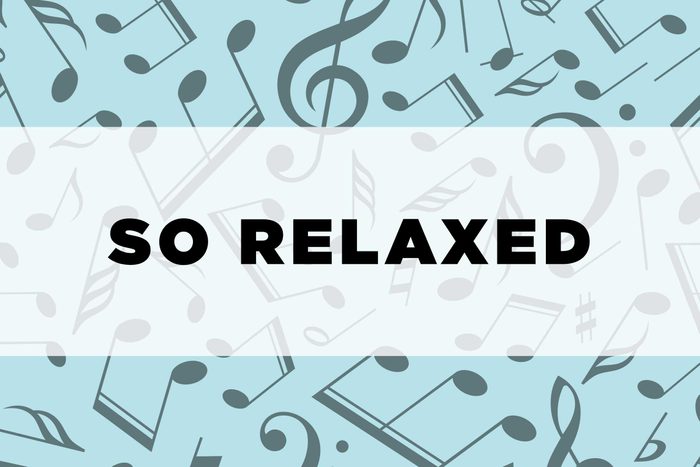
Classical music helps you relax
You don’t have to pay for a pricey spa or massage to reap the benefits of a little rest and relaxation. Listening to classical music can trigger even more physiological benefits than decreasing cortisol levels and lowering blood pressure. Jackson says that it can also increase the release of the feel-good neurotransmitter dopamine in your brain, which can reduce stress and, as a result, help you feel more relaxed. Plus, she adds, “When we listen to music, our mood improves, and we feel happier.” Check out these breathing exercises that can help you relax in minutes.
